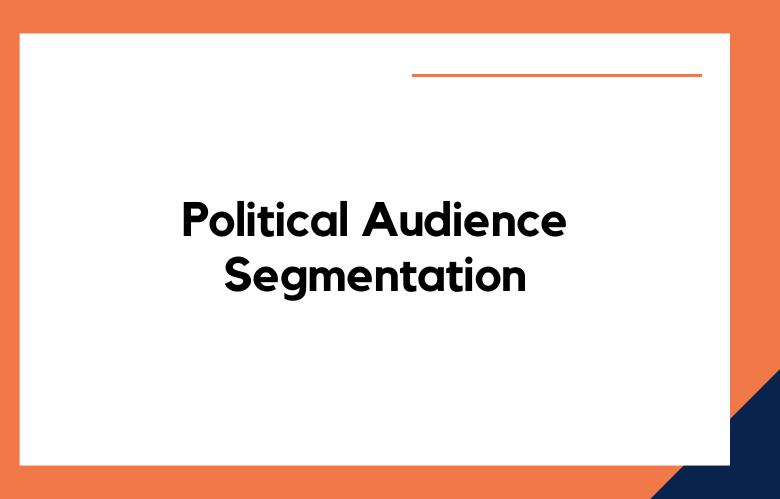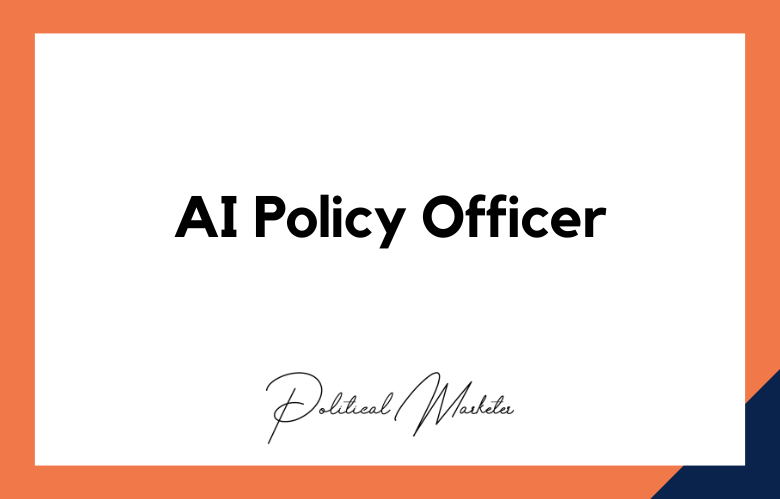Politicians have long recognized the importance of understanding their constituents and tailoring their messages to different groups of voters. However, with the rise of generative AI and audience segmentation, political messaging has taken on a new level of personalization.
By using AI to create targeted messages for specific subsets of the population, politicians can now speak directly to individual concerns and interests. We will discuss the intersection of generative AI and political audience segmentation, examining how technology is changing the face of campaign messaging.
From Data to Votes: Harnessing Generative AI for Political Audience Segmentation
Politics is an ever-evolving field that thrives on understanding and targeting specific audience segments. In today’s data-driven world, where information is the lifeblood of democracy, it has become increasingly important for political parties to utilize new technologies and analytics to identify their target audience and tailor their message to appeal to them directly. One of the most promising ways to achieve this goal is through generative AI.
Generative AI can analyze large amounts of data, identify patterns, and generate new data based on those patterns. This can be particularly useful in political campaigning, where exploring a voter’s psychological, social, cultural, and demographic characteristics can give political parties and candidates a significant advantage.
By segmenting their audience into distinct categories based on these factors and generating custom messages for each, political campaigns can achieve high voter engagement and support.
Unleashing Generative AI: Personalization in Political Audience Segmentation
Understanding audience segmentation has become vital for political campaigns in today’s ever-evolving political landscape. As new and younger generations enter the voting pool, more than conventional segmentation techniques may be needed, emphasizing the need for accurately identifying and targeting a candidate’s unique audience. This has led to the exploration of generative AI to help campaigns better understand their constituents and craft more effective messaging to gain their support.
Generative AI is a subdivision of artificial intelligence that enables the creation of new content by processing large amounts of data. When applied to political campaigns, generative AI can help generate insights into voter attitudes and opinions, thus allowing for more precise targeting when crafting political messages.
Analyzing vast amounts of data from social media platforms, digital ads, and other online sources can identify fundamental interests and concerns among voters, enabling campaigns to create personalized messages to make a deeper connection with voters.
The Power of Personalization: How Generative AI is Revolutionizing Political Segmentation
In recent years, there has been a growing interest in using generative AI to revolutionize political segmentation. This trend is driven by the power of personalization, which allows campaigns to tailor their messages to individual voters based on their preferences, beliefs, and past behaviors.
Generative AI can analyze large amounts of data and identify patterns and traits that can be used to create unique voter profiles. This enables campaigns to create personalized messages that speak directly to voters’ concerns rather than relying on broad generalizations that may not resonate with specific groups.
One key benefit of this approach is that it allows campaigns to target specific groups of voters with greater precision. For example, campaigns can use generative AI to identify swing voters who are more likely to be swayed by a particular message. This can be particularly useful in tight races where small shifts in voter sentiment can make a big difference.
Tailored Messages for Targeted Success: Exploring Generative AI in Political Audience Segmentation
Tailored messages have always been an integral part of political campaigning. However, with technological advancements and the rise of big data, political parties have turned to generative AI to fine-tune their messaging strategies for optimal success.
In particular, political audience segmentation has become increasingly crucial for parties to identify and target specific groups of voters with tailored messaging.
Generative AI uses algorithms to analyze large datasets, detecting patterns and trends that can be used to create a predictive model. Political parties can feed data from various sources, such as social media, demographic profiles, past voting behaviors, and other public records, into AI systems to segment their target audience precisely. This process allows them to gain invaluable insights into their voter base and produce more personalized, meaningful, and compelling messages.
Breaking Down Barriers: Personalization through Generative AI in Political Segmentation
In recent years, political segmentation has become a key area of interest for governments, political parties, and social organizations. Understanding and dividing people based on their political beliefs and preferences is crucial for effective campaigning, policy-making, and communication.
However, political segmentation is challenging. The world is becoming increasingly diverse and complex, and traditional demographic and geographic segmentation methods are no longer sufficient.
This is where generative AI comes in. Generative AI is a subfield of artificial intelligence that uses machine learning algorithms to generate new content based on a given set of rules and data.
In political segmentation, generative AI can analyze vast amounts of data, including social media posts, online surveys, voting records, and demographic information, to create personalized political profiles for each individual.
Navigating the Political Landscape: Generative AI and Personalized Audience Segmentation
In recent years, the field of politics has undergone a radical transformation with the advent of advanced technologies such as generative AI and personalized audience segmentation.
These cutting-edge tools have enabled political campaigns to target specific population segments with tailored messages to influence their opinions and secure their votes. However, these technologies have also raised concerns about potential abuse and manipulation.
Generative AI, in particular, has proven to be a game-changer in political campaigning. With its ability to process and analyze vast amounts of data, machine learning algorithms can create highly targeted messaging that resonates with different groups of voters.
Using data gathered from social media, online surveys, and other sources, AI-powered campaigns can identify critical issues that matter to voters and craft bespoke messaging that speaks directly to their concerns.
The Future of Political Engagement: Generative AI and Personalization in Audience Segmentation
AI-Driven Audience Segmentation
AI-driven audience segmentation uses artificial intelligence to divide audiences into smaller, more targeted groups. This allows political campaigns to tailor their messaging and outreach strategies to different population segments. By leveraging AI, campaigns can identify patterns in voter behavior and target specific demographics with tailored messages that are more likely to resonate with them.
Personalized Messaging
AI-driven audience segmentation also allows political campaigns to create personalized messaging for each voter. By understanding the needs and interests of a particular demographic, campaigns can craft messages that will be more effective in persuading voters to take action or support a specific candidate or issue.
Automated Campaigns
AI can also automate entire political campaigns, from creating content and targeting ads on social media to sending out emails and managing online fundraising efforts. Automating these processes saves time and money and ensures that all aspects of the campaign are running smoothly and efficiently.
Generative AI
Generative AI is artificial intelligence that generates new content based on existing data sets. This technology has been used by political campaigns to create personalized videos, images, graphics, and other types of content for use in their outreach efforts. Generative AI can help ensure that all content created for a campaign is consistent in tone and style while still being unique enough to capture the attention of potential voters.
Predictive Analytics
Predictive analytics is another type of artificial intelligence that political campaigns can use to gain insights into voter behavior and anticipate how they might respond to specific messages or initiatives. This technology can inform campaign strategy by providing data-driven insights into which messages will most likely resonate with different population segments.
Real-Time Data Analysis
Real-time data analysis is another way that political campaigns can use artificial intelligence to gain insights into voter behavior and trends in public opinion in real-time.
This technology allows movements to quickly adjust their strategies based on changes in public opinion or shifts in sentiment towards specific issues or candidates during an election cycle or other political event.
Social Media Monitoring
Political campaigns can also use AI for social media monitoring, which involves tracking conversations about specific topics or candidates on social media platforms such as Twitter, Facebook, Instagram, etc., to gain insights into public opinion about them or their policies/positions on various issues.
Campaigns can then use this information when crafting their messaging strategies or deciding which initiatives should receive more attention than others during an election cycle or other political event.
Automated Moderation Tools
Political campaigns can use automated moderation tools powered by artificial intelligence to moderate comments on social media posts and websites related to their candidates or policies/positions on various issues to ensure that only appropriate content is shared publicly about them online.
Conclusion
Generative AI and audience segmentation are changing the face of political messaging. By creating personalized messages that speak directly to individual concerns and interests, politicians can connect more with voters.
This not only builds trust and credibility with their supporters but can also increase engagement and turnout. As technology continues to evolve, we will likely see even more advanced uses of AI in politics.
However, we must remain aware of the potential risks and ethical considerations of using AI to influence political behavior. Through thoughtful and responsible use of these tools, we can create a more engaged and informed electorate that is better equipped to make informed decisions about the future of our country.











